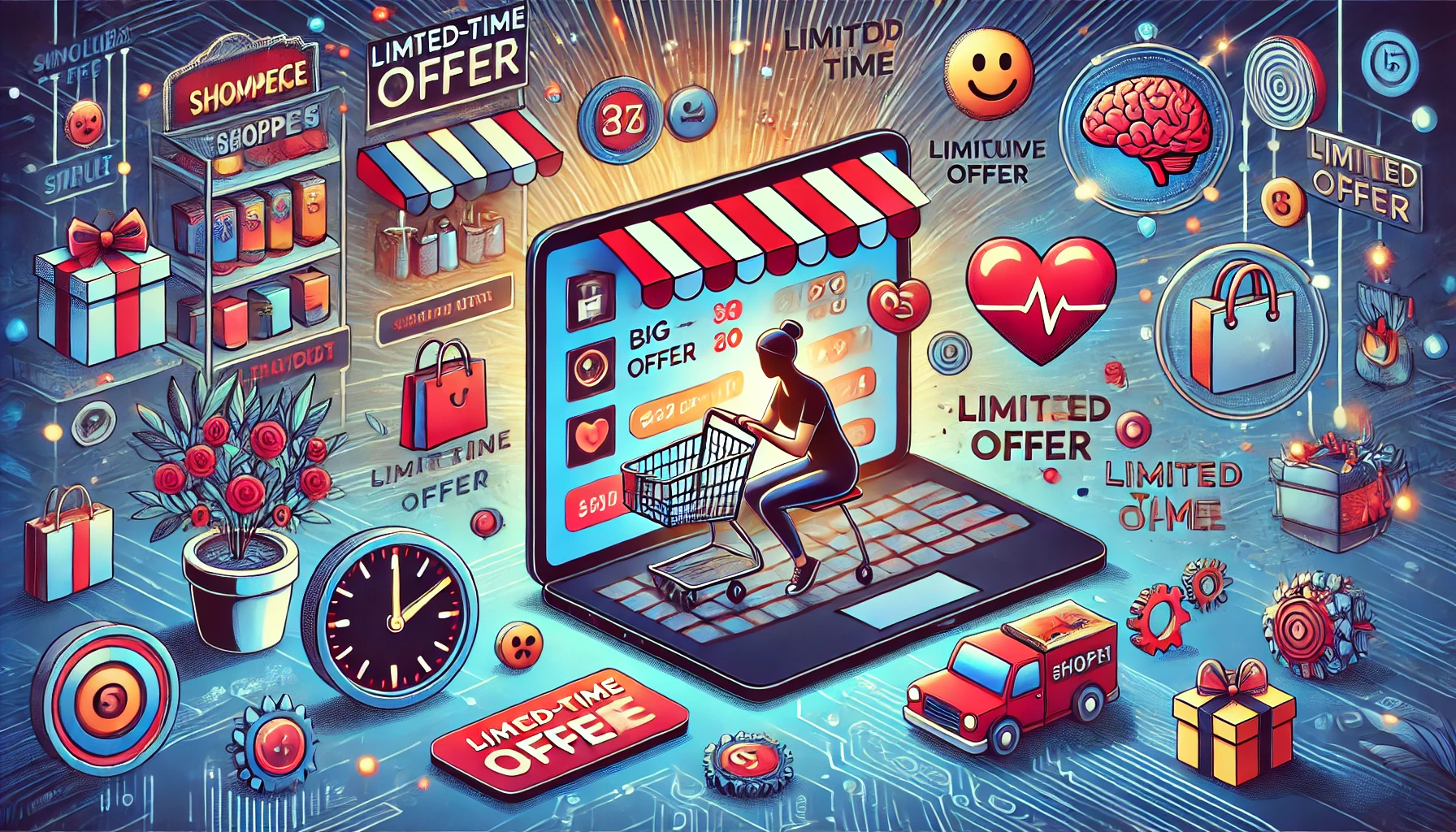The Impact of Personality Traits on Impulse Purchases in the Digital Marketplace
The study explores how the Big Five personality traits influence impulsive buying in e-commerce, highlighting the amplifying effects of time pressure and emotions. It offers insights for businesses to tailor marketing strategies based on these psychological factors.

Researchers from the Department of Business Administration at Chaoyang University of Technology in Taiwan and the Management Department at BINUS Business School Undergraduate Program in Indonesia have conducted a comprehensive study. The study delves into the psychological factors that drive impulsive buying behavior in e-commerce settings, focusing specifically on the Big Five personality traits agreeableness, openness to experience, extraversion, conscientiousness, and neuroticism. Utilizing data collected from 342 Indonesian participants with e-commerce purchasing experience, the researchers employed Structural Equation Modeling (SEM) to validate their hypotheses and explore how these personality traits influence impulsive buying behavior, with a particular emphasis on the moderating effects of time pressure and emotions.
The Role of Personality Traits in Impulse Buying
The findings of the study reveal that personality traits significantly impact impulsive buying behavior in e-commerce environments. Individuals who score high in agreeableness, openness to experience, extraversion, and neuroticism are more prone to make impulsive purchases. For instance, those with high agreeableness are more likely to engage in impulsive buying as they tend to prioritize harmonious relationships and might find it difficult to resist attractive product offerings, especially when these offerings appeal to their desire for social approval. Similarly, individuals with high levels of openness to experience are drawn to novel and innovative products, making them more susceptible to impulsive purchases driven by curiosity and the desire to explore new things. Extraverted individuals, characterized by their sociability and enthusiasm, also show a strong tendency toward impulsive buying, particularly when influenced by attractive deals or the excitement of social shopping experiences. Neuroticism, which is associated with emotional instability, anxiety, and susceptibility to stress, further exacerbates impulsive buying behavior as individuals high in this trait may use shopping as a coping mechanism to alleviate negative emotions.
Conscientiousness: A Buffer Against Impulsive Behavior
On the other hand, the study found that conscientiousness plays a contrasting role. Individuals who score high in conscientiousness are more likely to exhibit self-control and are less prone to impulsive buying. These individuals are typically organized, disciplined, and goal-oriented, which helps them resist the temptation to make unplanned purchases. Their purchasing decisions tend to be more deliberate and well-thought-out, minimizing the likelihood of succumbing to impulsive buying triggers.
Time Pressure and Its Impact on Online Shopping
In addition to examining the direct effects of personality traits on impulsive buying behavior, the study also explores the moderating effects of time pressure and emotions. The results indicate that time pressure significantly amplifies impulsive buying tendencies among individuals with high levels of agreeableness, extraversion, and openness to experience. When faced with limited-time offers or the urgency to make quick decisions, these individuals are more likely to engage in impulsive purchases, driven by the fear of missing out on a good deal or the desire to quickly satisfy their curiosity or social needs. This suggests that e-commerce platforms can strategically use time-limited promotions and countdowns to trigger impulsive buying among these personality types.
Emotions: The Hidden Driver of Impulse Buying
Emotions also play a crucial role in moderating the relationship between personality traits and impulsive buying behavior. The study finds that positive emotions, such as excitement and happiness, can enhance impulsive buying tendencies, particularly among those high in extraversion and openness to experience. These individuals are more likely to make impulsive purchases when they are in a positive emotional state, as the pleasure they derive from shopping reinforces their desire to buy on impulse. Conversely, negative emotions like anxiety and stress can also drive impulsive buying, especially among individuals high in neuroticism. For these individuals, impulsive buying serves as a way to cope with negative feelings, offering a temporary sense of relief or comfort.
Strategic Implications for E-Commerce Businesses
The study's implications are significant for e-commerce businesses looking to optimize their marketing strategies. By understanding how personality traits interact with time pressure and emotional triggers, businesses can better tailor their promotional tactics and user interfaces to align with the unique characteristics and preferences of their customers. For example, platforms could use personalized marketing strategies that cater to the specific personality profiles of their users, offering time-limited discounts or emotionally appealing promotions that are more likely to resonate with those who are prone to impulsive buying. Additionally, the research highlights the importance of creating an engaging and emotionally stimulating online shopping experience, as this can further enhance consumer engagement and drive profitability through strategic impulse buying. Overall, this study contributes to the broader understanding of consumer behavior in digital shopping environments, offering both theoretical insights and practical guidelines for optimizing online retail experiences. The findings underscore the complex interplay between personality traits, time pressure, and emotions in shaping impulsive buying behavior, providing valuable information for businesses seeking to enhance consumer engagement and drive sales in the highly competitive e-commerce landscape.
- FIRST PUBLISHED IN:
- Devdiscourse
ALSO READ
CCPA Penalises Amazon, Flipkart, Meesho, Meta and Others for Illegal Sale of Walkie-Talkies on E-Commerce Platforms
CBIC Extends RoDTEP, RoSCTL and Duty Drawback Benefits to Postal E-Commerce Exports from January 15
Clampdown on E-Commerce: CCPA Targets Unauthorized Walkie-Talkie Sales
iThink Logistics: Pioneering Intelligent Fulfillment in India's E-commerce Landscape
AI and AR form powerful engagement loop in global e-commerce platforms










